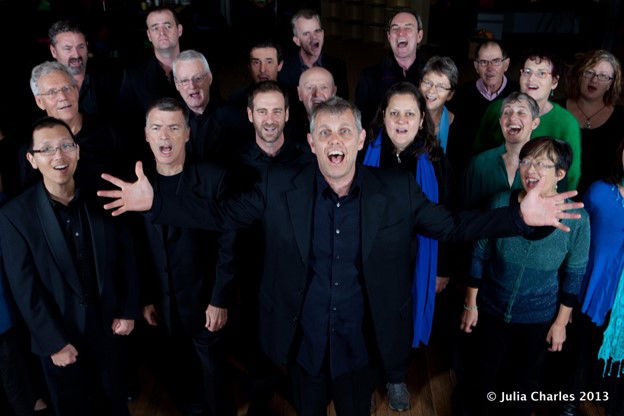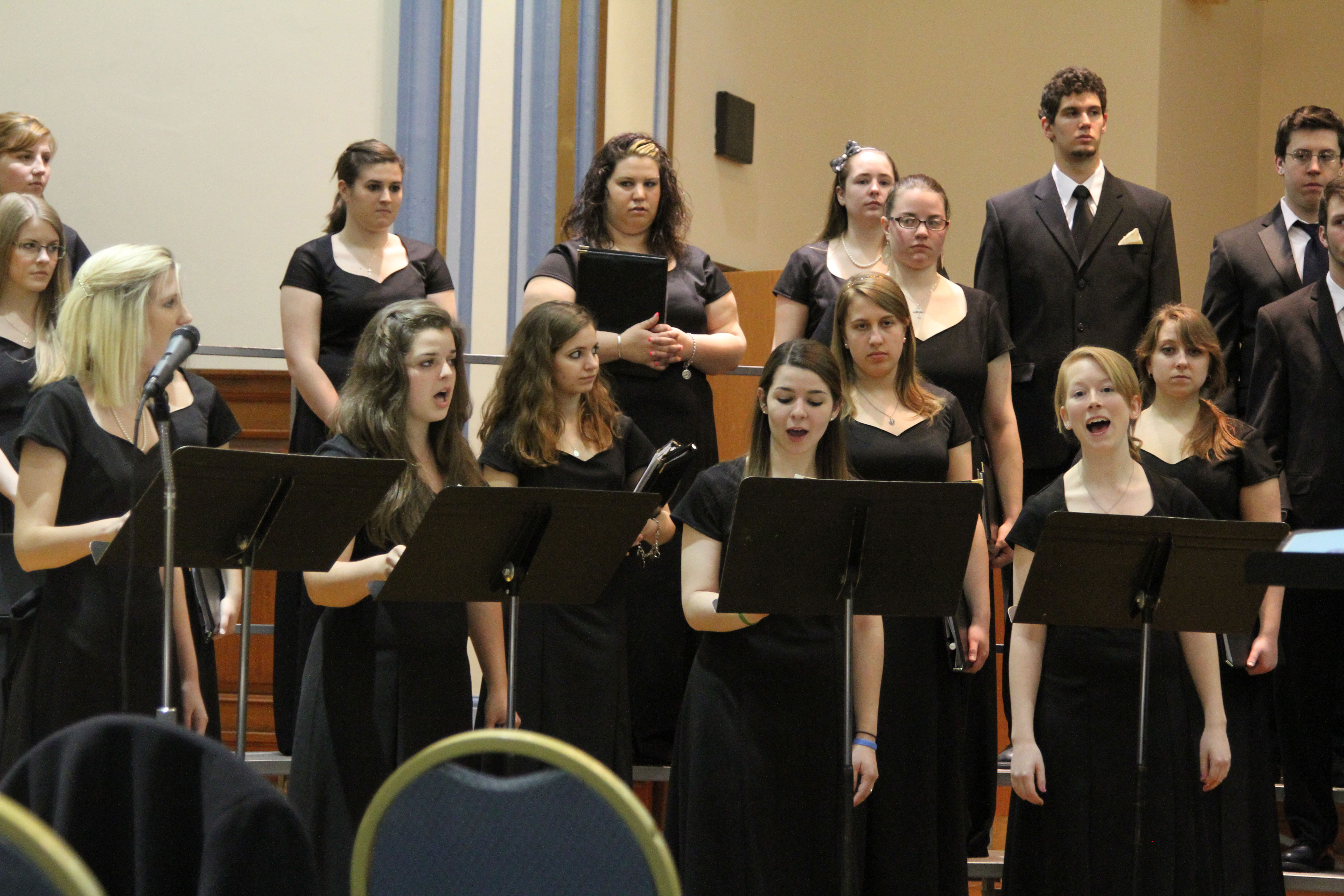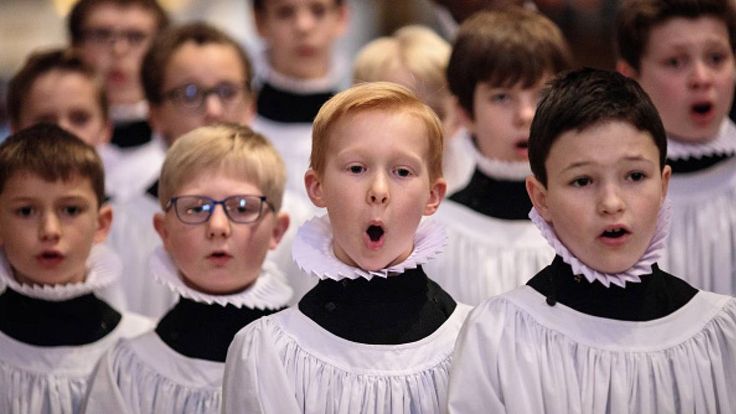Singing in a Choral Group Improves Your Life

Choral music is a vital part of the education of many students of high school age, whether in public school, private school or as a homeschool student in a choral co-op. Choral music programs stand out as an experience that can be enriching and even life-changing for students. Beyond the act of singing the music, participation in a choral music program can have profound effects on a high school student’s life. In this article, we will explore how choral music programs enhance students’ lives and what a student study in numerous ways.
1. Building Vocal and Musical Skills
At the heart of any choral music program is the development of vocal and musical skills. Students who participate in choir have the opportunity to refine their singing abilities, learn proper vocal techniques, and understand the nuances of music theory. These skills not only contribute to their musical growth but also provide a strong foundation for future exploration of the arts.
Personal Story – When I was a teenager, I thought I’d like to do Christian rock as a career. However, my parents thought that I should go to college, so I did, and majored in music. As part of that, I learned a lot about music theory and had to listen to a lot of “classical” music. I also was part of the College Choir and Community Choir, and learned a lot about vocal projection, enunciation, and even about how to adjust the tempo of a song to fit the room (The more reverberation in a room, the slower the song had to be sung/played so that it wouldn’t sound muddy). This education and experience added to the foundation of music knowledge that I had gained in high school from my choral and band teachers.
After graduating, I pursued my passion for playing and singing Christian music, rock and folk mostly. However, with my head full of musical knowledge and experience, I wrote some songs that had classical forms, and used some chord progressions that were much more prevalent in classical works than in pop tunes. I was told more than once that my music wasn’t very “mainstream”, to which I replied, “Thank you”. It was a compliment to me, and people seemed to like the change from the usual stuff they had been hearing.
(Now, back to the article) If a student is open to the many and varied ways that music can be created and expressed, the opportunities are virtually endless for enjoying and pursuing avenues of music. These choices can include such things as being a:
- Composer – One who writes music including pop music of all sorts (e.g., rock, country, etc.), “classical”, including choral, band, orchestral, etc.
- Arranger – One who takes a previously written piece and adapts it for a different group of instruments and/or voices. Applies to the same list as above.
- Lyric or Libretto Writer – One who writes words to vocal music of all sorts, including pop tunes, choral pieces of all sorts, both Christian and secular.
- Singer – One who sings. This is more difficult than it may seem. Yes, virtually everyone can sing, but not everyone who sings is able to please an audience.
- Instrumentalist – One who plays an instrument. These include all sorts of devices, including a myriad of strings (acoustic, electric and classical guitar, lute, banjo, violin, viola), woodwinds (familiar ones like flute or sax and unusual ones like ocarina and pan pipes), brass instruments (familiar like trumpet and trombone or rarer ones like herald trumpet or double-belled euphonium), keyboards, which are considered a percussive string instrument (acoustic and electric), and percussion of a million kinds.
- Conductor – One who leads a music ensemble, whether vocal, instrumental or both. It involves far more than waving one’s arms and pointing.

2. Enhancing Listening and Interpretation Skills
Choral music requires attentive listening and interpretation. Singers must listen to their fellow choristers, follow the conductor's directions, and interpret the emotions conveyed in the music. This heightened awareness of auditory cues and the ability to interpret complex musical compositions can lead to improved listening skills and a deeper appreciation of music in all its forms. Listening has become a lost art. Choral students learn to listen to hear, not just to respond.
Choral music is written in such a way that all the singers can see the parts for all the other singers. It helps if the singers of one part follows the parts of the others, once they have learned their parts. That will enhance the listening endeavor and better the understanding of the whole piece. For example, if the tendency of the tenor part is a rising line, it may be in parallel or counter to another part. The tenors could see and hear that and understand the intention of the composer or arranger better. The singers could learn to compare and contrast methods and style of different composers and arrangers, or the different styles that a single vocal writer uses. Some great examples of variety by one composer / arranger can be found among the choral works at Salt Cellar Creations. Click HERE to see more.
3. Fostering Discipline and Dedication
Choral music programs demand discipline and dedication from their participants. Students must attend rehearsals, practice regularly, and commit to learning and memorizing music. This commitment teaches them the value of persistence and hard work, qualities that are transferable to other aspects of their studies and future endeavors.
Many times students, and people in general, are heard to say, “But, I just can’t find the time to…”. People rarely find the time to do anything. More often than not, the time must be carved from other activities such as being on social media, watching entertainment or other things that, in the end, don’t really contribute to a person’s life. Learning and practicing music will enhance a person’s life far more than any entertainment or other frivolous diversion can.
Sometimes, such an evaluation can reorder a person’s life in such a way that some things that, in and of themselves, aren’t bad, but may be taking up more time than they should. A hobby or other worthwhile diversion may need to be halted in order to make room for those things that are truly better for a person than the diversion. Such an evaluation may also lead a person to consider the place that God has in his or her life and to reorder that life to put Him at the top of the list of priorities.
4. Nurturing a Sense of Unity and Teamwork
A really good choir is known for the sense of unity and teamwork among its members. When singers come together to create great music, they experience a profound sense of camaraderie. They must rely on each other, blend their voices, and work as a cohesive unit to achieve musical excellence. This collaborative spirit extends beyond the choir room and can positively influence how students interact with their peers in academic settings and in life.
In some situations, there may even be hand clapping, foot stomping, swaying or outright dancing associated with the music. This would take even more coordination and would be on par with a marching band playing, marching and moving to the music at the same time.

5. Developing Confidence and Stage Presence
Performing in front of an audience is a central aspect of choral music programs. As students gain experience singing in public, they build confidence and stage presence. This newfound self-assurance can extend to other areas of their lives, including public speaking, leadership roles, and social interactions.
Some singers experience a persistent condition of stage fright. This can often be alleviated by the shared, positive, confident outlook of the other singers. A sense of “We’re all in this together” can be contagious.

6. Exploring Cultural Diversity
Choral music often includes a diverse range of compositions from different cultures and time periods. Through the study and performance of such music, students are exposed to a wealth of cultural diversity. This exposure can broaden their horizons, foster cultural awareness, and promote an appreciation for the richness of God’s gifts of creativity and expression.
Just as people that live in different places on Earth live their lives in different ways, e.g., different houses, food, clothing, and language, so, too, music from those places and from different places in their history off a rich tapestry of musical experience for a choral ensemble.
7. Encouraging Emotional Expression
Music is a powerful medium for emotional expression, and choral singing allows students to tap into their emotions and convey them through song. They learn to express a wide range of feelings, from joy and celebration to sadness and introspection, without the need for words. This emotional outlet can be therapeutic and help students better understand and manage their own emotions.
Medical and psychological research has discovered that not only are endorphins, the “feel-good” chemical in the brain, released during exercise and expressions of happiness, but that acknowledging sorrow and pain also releases them. A part of some psycho-therapy, engaging in a primal scream is encouraged as a way to release emotion. Singing is a much more civilized way to improve one’s health.

8. Improving Memory and Cognitive Skills
Learning and memorizing complex musical compositions can significantly improve memory and cognitive skills. The process of memorization challenges students to strengthen their memory retention, concentration, and problem-solving abilities. When singers memorizes the music, they can concentrate on the presentation, diction, phrasing, dynamics and other elements of the song. These cognitive benefits can extend to their academic performance in other subjects, enhancing their overall learning experience.
Interestingly there are quite a few YouTube videos of music for studying. They include works by Bach, Brahms, Mozart and other of the “older” classical composers. There are none by Bartok or Schoenberg. The older ones present a wonderful combination of intellect and emotion. The newer ones show almost entirely an intellectual approach to their music.
Personal Story: While I was in high school chorus, we were required to memorize all of the music for each concert. This included Handel’s Hallelujah Chorus! Part of the memorization process, at least for me, was hearing and recognizing all of the other parts, especially those closest to me. Even now, I can still recall a fair amount of the tenor part, which I sang, as well as some of the other parts.
9. Encouraging Lifelong Musical Engagement
Participation in a choral music program often instills a lifelong love of music. Many students who sing in school choirs continue to engage with music throughout their lives, whether through community choirs, church choirs, or simply as a personal hobby. This enduring connection to music can bring joy and fulfillment to their lives, enriching their overall quality of life.
Having studied and performed music, students will have a better understanding of the music they listen to and often will acquire music tastes that include selections that are much better art than the pablum of contemporary top forty radio fare.
10. Promoting Personal Growth and Self-Expression
Finally, choral music programs provide students, and people in general, with a platform for personal growth and self-expression. Singing allows individuals to convey their unique voices and emotions, helping them develop a strong sense of identity and self-worth. It encourages them to express themselves authentically, which can be a valuable skill in both their personal and professional lives. Even the most introverted singer can “come alive” when singing in a choral group.
In conclusion, choral music programs enhance a student’s studies in multifaceted ways, from building vocal and musical skills to fostering discipline, teamwork, and emotional expression. The benefits of participating in a choral group extend beyond the realm of music, positively influencing students' personal and academic development. Generally, studying and performing music also builds synapses in the brain to allow for more complex thought. As students raise their voices in song, they embark on a journey that not only enriches their learning experience but also equips them with valuable skills and qualities for a lifetime of success and fulfillment.
Salt Cellar Creations understands the benefits of singing in a choral group and has a growing library of original works and arrangements that enable a choral group to sound its best. . Find out more about what Salt Cellar Creations has to offer for Choral Groups HERE. Explore the available music HERE.
SCC can also compose an original piece for you or do a custom arrangement for you. There are two ways that this can be done; one is much more affordable than the other. And SCC is always looking for ideas of pieces to arrange or suggestions for original pieces.
We have sold music not only in the US but in Canada, the United Kingdom, France, Australia, New Zealand, Austria, and Germany. Please visit the WEBSITE or CONTACT US to let us know what we can do for you!